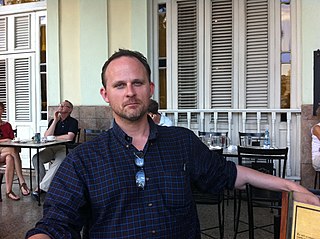A Quote by Joyce Carol Oates
Technique holds a reader from sentence to sentence, but only content will stay in his mind.
Related Quotes
Writing is linear and sequential; Sentence B must follow Sentence A, and Sentence C must follow Sentence B, and eventually you get to Sentence Z. The hard part of writing isn't the writing; it's the thinking. You can solve most of your writing problems if you stop after every sentence and ask: What does the reader need to know next?
The arrangement of the words matters, and the arrangement you want can be found in the picture in your mind. The picture dictates the arrangement. The picture dictates whether this will be a sentence with or without clauses, a sentence that ends hard or a dying-fall sentence, long or short, active or passive.
The prospect of his future life stretched before him like a sentence; not a prison sentence but a long-winded sentence with a lot of unnecessary subordinate clauses, as he was soon in the habit of quipping during Happy Hour pickup time at the local campus bars and pubs. He couldn’t say he was looking forward to it, this rest-of-his-life.
There is no ideal length, but you develop a little interior gauge that tells you whether or not you're supporting the house or detracting from it. When a piece gets too long, the tension goes out of it. That word?tension?has an animal insistence for me. A piece of writing rises and falls with tension. The writer holds one end of the rope and the reader holds the other end?is the rope slack, or is it tight? Does it matter to the reader what the next sentence is going to be?
It's kind of like sentencing. A lot of people say that we have a heavy sentence for this crime and a light sentence for another crime, and what we ought to do is reduce the heavy sentence so it's more in line with the other. Wrong. In most cases we ought to increase the light sentence and make it compatible with the heavy sentence, and be serious about punishment because we are becoming too tolerant as a society, folks, especially of crime, in too many parts of the country.
A sentence is like a tune. A memorable sentence gives its emotion a melodic shape. You want to hear it again, say it—in a way, to hum it to yourself. You desire, if only in the sound studio of your imagination, to repeat the physical experience of that sentence. That craving, emotional and intellectual but beginning in the body with a certain gesture of sound, is near the heart of poetry.
Every sentence has a truth waiting at the end of it and the writer learns how to know it when he finally gets there. On one level this truth is the swing of the sentence, the beat and poise, but down deeper it's the integrity of the writer as he matches with the language. I've always seen myself in sentences. I begin to recognize myself, word by word, as I work through a sentence. The language of my books has shaped me as a man. There's a moral force in a sentence when it comes out right. It speaks the writer's will to live.
The first sentence of the truth is always the hardest. Each of us had a first sentence, and most of us found the strength to say it out loud to someone who deserved to hear it. What we hoped, and what we found, was that the second sentence of the truth is always easier than the first, and the third sentence is even easier than that. Suddenly you are speaking the truth in paragraphs, in pages. The fear, the nervousness, is still there, but it is joined by a new confidence. All along, you've used the first sentence as a lock. But now you find that it's the key.





































